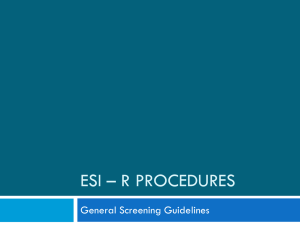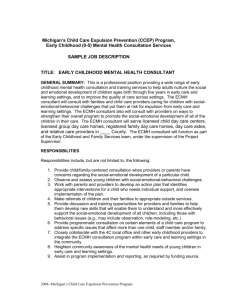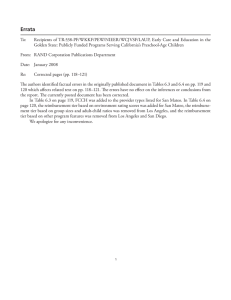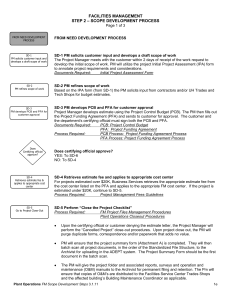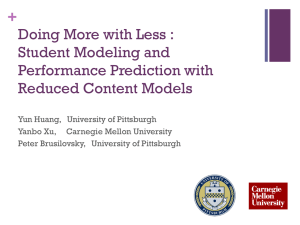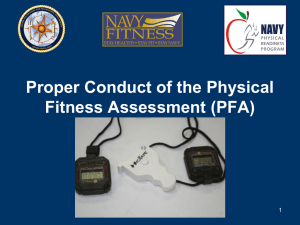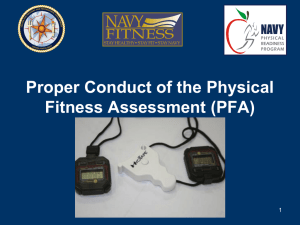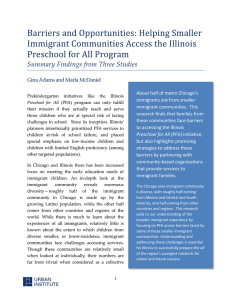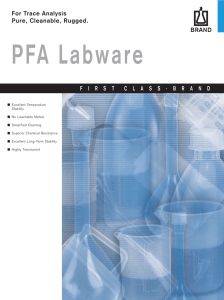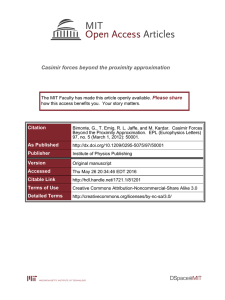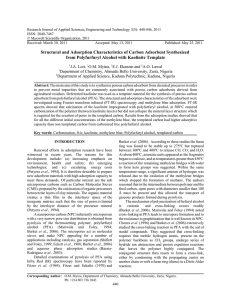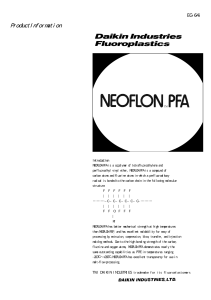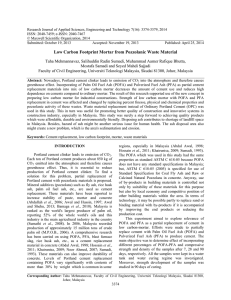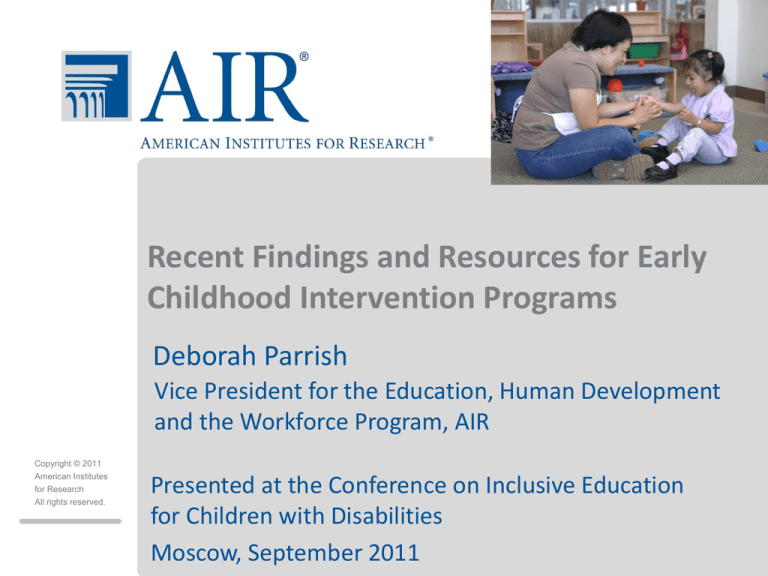
Recent Findings and Resources for Early
Childhood Intervention Programs
Deborah Parrish
Vice President for the Education, Human Development
and the Workforce Program, AIR
Copyright © 2011
American Institutes
for Research
All rights reserved.
Presented at the Conference on Inclusive Education
for Children with Disabilities
Moscow, September 2011
Overview of Presentation
• Recent Findings from Preschool for All
Evaluation, San Mateo, California
Use of Ages and Stages Screening Tool
Case Study of a Collaborative Inclusion
Model
Evaluation of a partner agency’s services:
the Early Childhood Mental Health
Consultation Project
2
Overview of Presentation, continued
• Resources from AIR’s work for national
(USA) Technical Assistance Centers:
National Center on Response to
Intervention
Center for Early Literacy Learning
Project Launch
3
Preschool for All (PFA) Process Evaluation,
San Mateo and San Francisco Counties
• State-supported high quality preschool
programs meeting minimum quality criteria
and inclusive of all children
• AIR evaluation examined all aspects of
program implementation, 2005-2010
• Focus on findings from 3 sub-studies:
Use of Ages and Stages Screening Tool
Case Study of Collaborative Inclusion Model
Early Childhood Mental Health Consultation
Project
4
Ages and Stages Screening Tool
• ASQ for children 4-60 months old; ASQ:SE for
children 6 months to 5 years old
• Annual requirement for all PFA children
• Completed with parental input
• Includes communication, gross and fine
motor, problem-solving, and personal-social
skills
• Cut-off scores indicate need for follow-up
assessment(s) and diagnosis
5
Ages and Stages Screening Findings
• Helped staff establish positive relationships
with parents early in the program year
• Identified children early for further
evaluation, assessment, and special services
• Indicated need for standardized decision
rules for results close to the cut-off scores –
and related teacher training for consistency
• Required time and expense to enable
teachers to be trained and participate in
screenings with parents
6
Collaborative Inclusion Model
• PFA teachers desired more training, support,
and specialized staff to serve children with
diagnosed special needs in their classrooms
• Strong and effective partnerships and vehicles
for communication among key agencies were
critical to success
• Parent partnerships were strongly encouraged
and parent feedback was extremely positive
• Close physical proximity to trained special
education providers was a facilitating factor
7
Early Childhood Mental Health (ECMH)
Consultation Project
• ECMH funded through PFA as a support to
staff and families, providing staff/parent
training, prevention, and early intervention
services to address children’s behavior and
social-emotional well-being
• PFA teachers reported ECMH as “highly
effective;” parents modified their parenting
practices and communication with teachers
• Children were served who were not eligible
for services elsewhere
8
Resources
• National Center on Response to Intervention, U.S.
Department of Education, Office of Special Education
Programs (OSEP)
http://www.rti4success.org/
• Center for Early Literacy Learning (OSEP)
http://www.earlyliteracylearning.org/productsct.php
• Project Launch, U.S. Department of Health and Human
Services, Substance Abuse and Mental Health Services
Administration (SAMHSA)
http://projectlaunch.promoteprevent.org/
9
Deborah Parrish
Phone: 650-843-8109
E-Mail: debparrish@air.org
2800 Campus Drive, Suite 200
San Mateo, CA, 94403
USA
Website: www.air.org
10

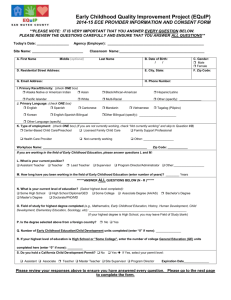



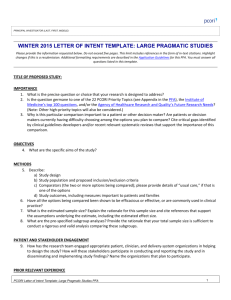
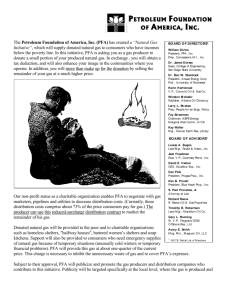
![Service Coordination Toolkit Transition Planning Checklist [ DOC ]](http://s3.studylib.net/store/data/006933472_1-c85cecf2cfb8d9a7f8ddf8ceba8acaf8-300x300.png)

